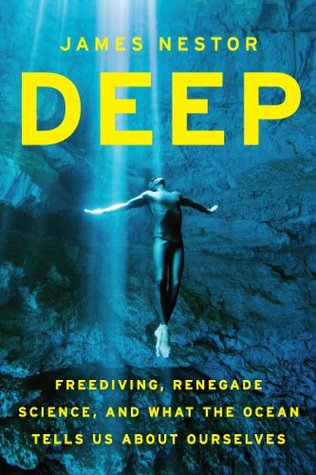More on this book
Community
Kindle Notes & Highlights
The pressure at three hundred feet down is more than nine times that of the surface, strong enough to crush a Coke can. At thirty feet, the lungs collapse to half their normal size; at three hundred feet, they shrink to the size of two baseballs.
During that three minutes beneath the surface (the average time it takes to dive a few hundred feet), the body bears only a passing resemblance to its terrestrial form and function. The ocean changes us physically, and psychically.
Scientists call it the mammalian dive reflex or, more lyrically, the Master Switch of Life, and they’ve been researching it for the past fifty years.
European visitors to the Caribbean, Middle East, Indian Ocean, and South Pacific in the seventeenth century reported seeing locals dive down more than one hundred feet and stay there for up to fifteen minutes on a single breath. But most of these reports are hundreds of years old, and whatever secret knowledge of deep diving these cultures harbored has been lost to the ages.
We’re born of the ocean. Each of us begins life floating in amniotic fluid that has almost the same makeup as ocean water. Our earliest characteristics are fishlike. The month-old embryo grows fins first, not feet; it is one misfiring gene away from developing fins instead of hands. At the fifth week of a fetus’s development, its heart has two chambers, a characteristic shared by fish. Human blood has a chemical composition startlingly similar to seawater. An infant will reflexively breaststroke when placed underwater and can comfortably hold his breath for about forty seconds, longer than
...more


